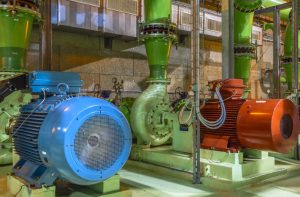 CERN and ABB are to study electric motor energy use at CERN, and will publish the results for public use.
CERN and ABB are to study electric motor energy use at CERN, and will publish the results for public use.
ABB described the project as “non-commercial” and said that it will demonstrate how data insight and service expertise can be applied to make better decisions about saving energy and increasing reliability at large-scale research facilities. “Currently, motors used to power pumps, fans, compressors and cooling towers account for 20% of CERN’s total energy consumption, or approximately 260 gigawatt hours,” it added, without saying over which period this energy was measured, nor if this number is the 20% or the total. Electronics Weekly has asked for clarification.
“We have partnered with ABB to generate insights to help reduce our own electricity footprint,” said CERN business development head Han Dols. “We hope to inspire other big science facilities and industry to do the same and, as such, have agreed with ABB to share the learnings of this project publicly.”
Digital performance data will be collected from hundreds of industrial electric motors, and ABB will identify where and how much energy can be saved by adjusting schedules and loads or upgrading to high-efficiency motors and variable speed drives. “Typically, this approach can yield 15% or more in energy savings,” according to ABB.
Data will also be used for condition monitoring to maintain cooling and ventilation system reliability.
A digitla twin of the systems will be created to CERN to carry out diagnostics and off-line testing of scenarios as it plans new cooling systems. The project’s final output is an energy-saving for CERN.
